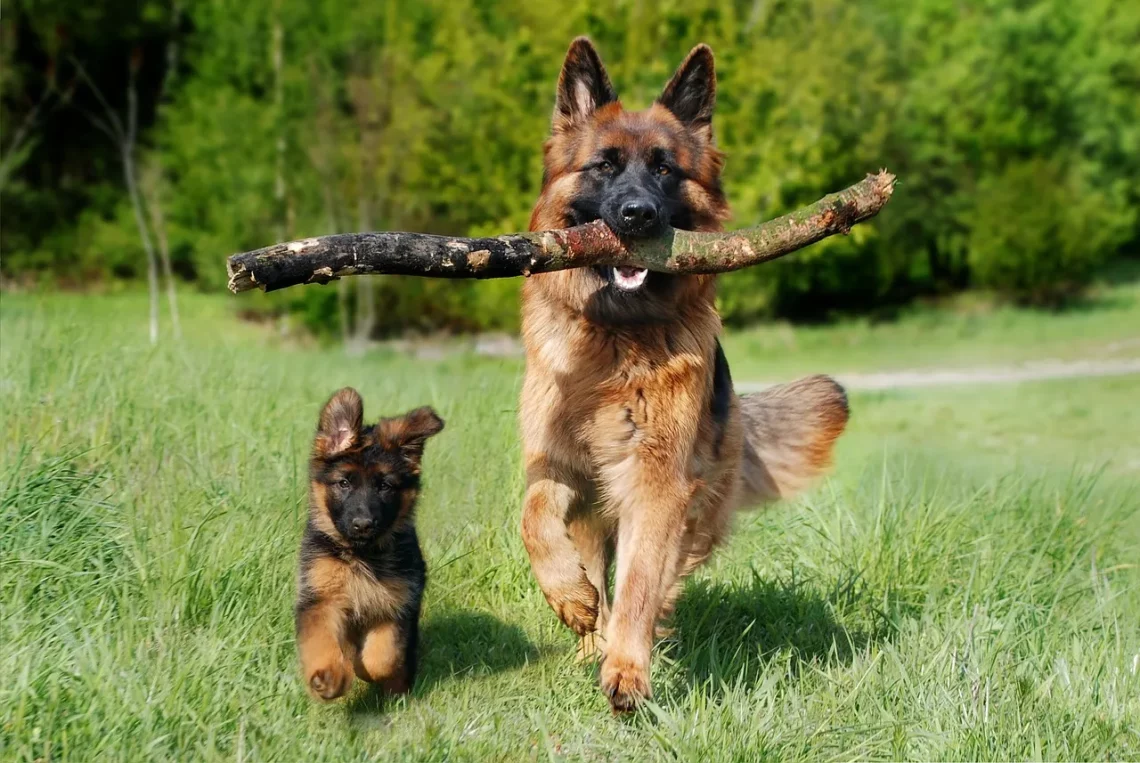
Understanding the Goldendoodle Adult: Traits, Care, and Training Tips
The Goldendoodle, a delightful hybrid breed, has captured the hearts of many dog lovers around the world. Combining the intelligence and friendly nature of the Golden Retriever with the hypoallergenic coat of the Poodle, this breed brings together the best of both worlds. Goldendoodles are known for their playful demeanor, eager-to-please attitude, and high adaptability, making them ideal companions for families, singles, and seniors alike.
As a designer breed, Goldendoodles come in various sizes, depending on whether they are bred from standard, miniature, or toy Poodles. This versatility allows potential owners to choose a Goldendoodle that best fits their lifestyle and living situation. Additionally, their sociable nature means they often thrive in environments where they can interact with people and other pets.
Understanding the nuances of raising a Goldendoodle is essential for any prospective owner. From their unique traits to their grooming needs, these dogs require dedicated care and training to ensure they grow into well-adjusted adults. As a breed that is both intelligent and energetic, Goldendoodles benefit from structured training and regular mental stimulation, alongside the love and attention they crave from their human counterparts.
Physical Traits and Characteristics
Goldendoodles exhibit a range of physical traits influenced by their parent breeds, the Golden Retriever and the Poodle. Their appearance can vary significantly depending on which type of Poodle is used in breeding. Standard Goldendoodles are larger, often weighing between 50 to 90 pounds, while miniature Goldendoodles typically weigh between 15 to 35 pounds. Toy Goldendoodles are the smallest, usually weighing under 15 pounds.
One of the most notable features of a Goldendoodle is their coat, which can come in various textures, including wavy, curly, or straight. This versatility not only contributes to their unique charm but also affects their grooming needs. Many Goldendoodle owners appreciate their low-shedding coats, which can be more hypoallergenic compared to other breeds. However, it is essential to note that no dog is completely hypoallergenic, and individual reactions may vary.
In terms of color, Goldendoodles can be found in a multitude of shades, ranging from cream and gold to apricot and even darker hues like red or black. The variety of colors adds to their appeal, allowing owners to choose a dog that fits their aesthetic preferences.
Beyond their physical traits, Goldendoodles are known for their friendly and outgoing personalities. They are typically very social and enjoy being around people and other pets. This breed tends to get along well with children, making them an excellent choice for families. Their intelligence also means they are quick learners, which can be beneficial during training sessions.
However, it’s essential to remember that each Goldendoodle is an individual, and personality traits can vary. Some may be more laid-back, while others are more energetic. Understanding these nuances can help potential owners select a Goldendoodle that aligns with their lifestyle and preferences.
Care and Grooming Requirements
Caring for a Goldendoodle involves several important aspects, particularly regarding grooming and health. Due to their unique coats, regular grooming is crucial to prevent matting and to keep their fur healthy. Most Goldendoodles require brushing at least two to three times a week, with some needing daily brushing, especially if they have a curlier coat. This regular grooming not only helps to manage shedding but also allows for early detection of any skin issues or parasites.
Bathing should be done as needed, typically every few months or when they become particularly dirty. It’s essential to use dog-safe shampoos to avoid irritating their skin. After bathing, drying their coat thoroughly is important, particularly if they have a thicker, curlier coat that can trap moisture.
In addition to grooming, regular veterinary check-ups are vital for maintaining a Goldendoodle’s health. Because they can be predisposed to certain health issues, such as hip dysplasia or allergies, proactive veterinary care can help catch potential problems early. Vaccinations, dental care, and parasite prevention should be part of a comprehensive health plan.
Another critical aspect of care is diet. Providing a balanced diet that meets their nutritional needs is essential for a Goldendoodle’s overall health. High-quality dog food, tailored to their age, size, and activity level, can help ensure they receive the necessary nutrients. Consulting with a veterinarian can help owners determine the best diet for their specific Goldendoodle.
Lastly, regular exercise is a must for this energetic breed. Goldendoodles thrive on physical activity and mental stimulation, so daily walks, playtime, and interactive toys can keep them engaged and healthy. A well-exercised Goldendoodle is often a happier and more well-behaved companion.
Training and Socialization Techniques
Training a Goldendoodle can be a rewarding experience, given their intelligence and eagerness to please. Early socialization is crucial for this breed to develop into a well-rounded adult dog. Exposing them to various environments, people, and other animals from a young age can help reduce the likelihood of behavioral issues later on.
Positive reinforcement is one of the most effective training methods for Goldendoodles. Using treats, praise, and play as rewards can motivate them to learn new commands and behaviors. Consistency is key in training; establishing a routine and using the same cues will help reinforce their learning.
Basic obedience training should be a priority, covering commands such as sit, stay, come, and leave it. These foundational skills not only enhance communication between the dog and owner but also contribute to the dog’s safety in various situations.
In addition to basic commands, Goldendoodles often excel in advanced training and activities, such as agility or obedience competitions. Given their intelligence, they can be taught a wide range of tricks and tasks, which can further deepen the bond between the dog and owner.
Socialization should continue throughout a Goldendoodle’s life. Regular visits to dog parks, playdates with other dogs, and attending training classes can provide valuable experiences for them. These interactions help reinforce positive behaviors and can aid in preventing shyness or aggression.
Lastly, it’s essential to be patient and understanding during the training process. Every dog learns at their own pace, and fostering a supportive environment will yield the best results. With dedication and love, a Goldendoodle can become a well-trained and cherished member of the family.
In conclusion, owning a Goldendoodle can be a fulfilling experience filled with companionship and joy. Understanding their traits, caring for their needs, and employing effective training techniques are all critical components of raising a happy and healthy Goldendoodle.
*Please note that this article is for informational purposes only and does not constitute medical advice. For any health-related concerns regarding your pet, please consult with a qualified veterinarian.*




